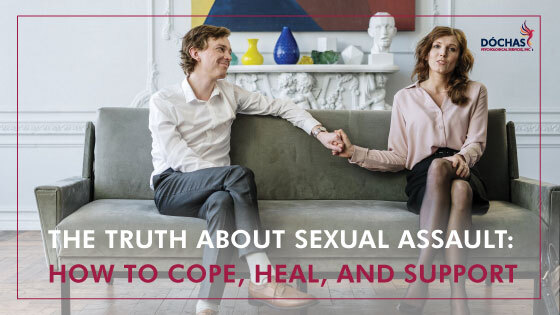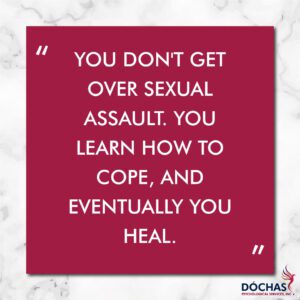Hi everyone, Schareen here! Chances are you found your way to this blog because you, or someone you know, has experienced some form of sexual assault or harassment.
The ugly truth of sexual assault
This is an uncomfy and difficult topic to write about. There’s so much to say but yet, I don’t know where to start. I guess I’ll start with the most important message I want to share, and that is for you to know that you’re not alone and there are tools to support and help sexual assault victims.
Despite huge advances in gender equality, human rights and consent, the unfortunate truth is that sexual violence happens often. More often than we realize. What’s an even more unfortunate truth is that many sexual assault victims feel silenced. It’s common for people who have survived some sort of traumatic sexual experience to hide their pain from everyone around them.
In Canada, over 11 million people have been physically or sexually assaulted since the age of 15. I know, problematic right? Sexual assault is a silent killer. Insecurities, fear, and judgement: they all affect how we understand and talk about sexual assault.
Whether you’ve experienced something traumatic yourself, someone you love has opened up to you about their experience, or maybe you’re questioning whether your experience was actually assault, here are some tools that will help you get through it.
How to cope with your traumatic experience
The first thing I want to tell you is that it’s not your fault. If you’ve opened up to anyone about your trauma, you’ve probably heard this a million times. Despite knowing that it wasn’t your fault, that you didn’t ask for it, you might still feel guilt. That’s okay. But for the million-and-first time, it’s not your fault.
Talking about sexual assault is hard! You might feel like others don’t understand, or they’re not supportive. If someone has made you feel like you need to get over it, know that you don’t. You don’t get over a sexual assault trauma, you learn how to cope with it and then, eventually, you heal.
Remember, you are entitled to your own experience and the feelings that come with it. You don’t have to justify your feelings to anyone.
How to support sexual assault victims
If someone you care about opened up to you about suffering from sexual assault, supporting them the right way can feel like a big load on your shoulders! But they confided in you for a reason, so don’t overthink it.
What’s the one right way to support them? Be what they need you to be. If they want someone to listen, listen. If they don’t want to talk about it, don’t push them. Remember to respect their decision about how they handle what has happened to them, even if you don’t personally agree. Let them feel in control of this process.
How to identify a traumatic sexual experience
A pressing issue with sexual assault is that it’s not always clear to victims whether they’ve been assaulted or not. It’s common for victims to downplay what happened to them, and not want to identify themselves as a sexual assault survivor.
So, if you’re reading this and thinking back to a time when you felt uncomfortable, unheard, disrespected and violated, and you’re wondering whether you were harassed or assaulted, know that you’re not alone. Know that it’s okay to admit you’re a victim, and say it out loud to yourself.
Sexual assault and harassment can happen in various ways. For more details on this, take a look at this article.
You’re not alone
I know that dealing with sexual assault can feel like the loneliest, darkest place in the world. But you don’t have to be alone. If you’re comfortable, open up to a friend you trust. If you don’t feel quite ready to share with the people around you, reach out to a therapist.
We can give you the support you need with no judgement. If you’re in need of someone to talk to, send us an email at info@dochaspsych.com or visit our website for more information on how we can help you work through your pain.
About Dochas Psychological
Dochas Psychological Services is a well-established and trusted therapy clinic located in Spruce Grove, Alberta. At Dochas we value the idea that everyone deserves a safe space. Through connection and education, our team works hard to build a trustworthy relationship with each of our clients. It is our goal to create a community for our clients to feel like they belong.
Disclaimer
Information provided through Dochas Psychological Services blogs or vlogs are meant for educational purposes only. They are NOT medical or mental health advice. You can read more about our disclaimer here.



